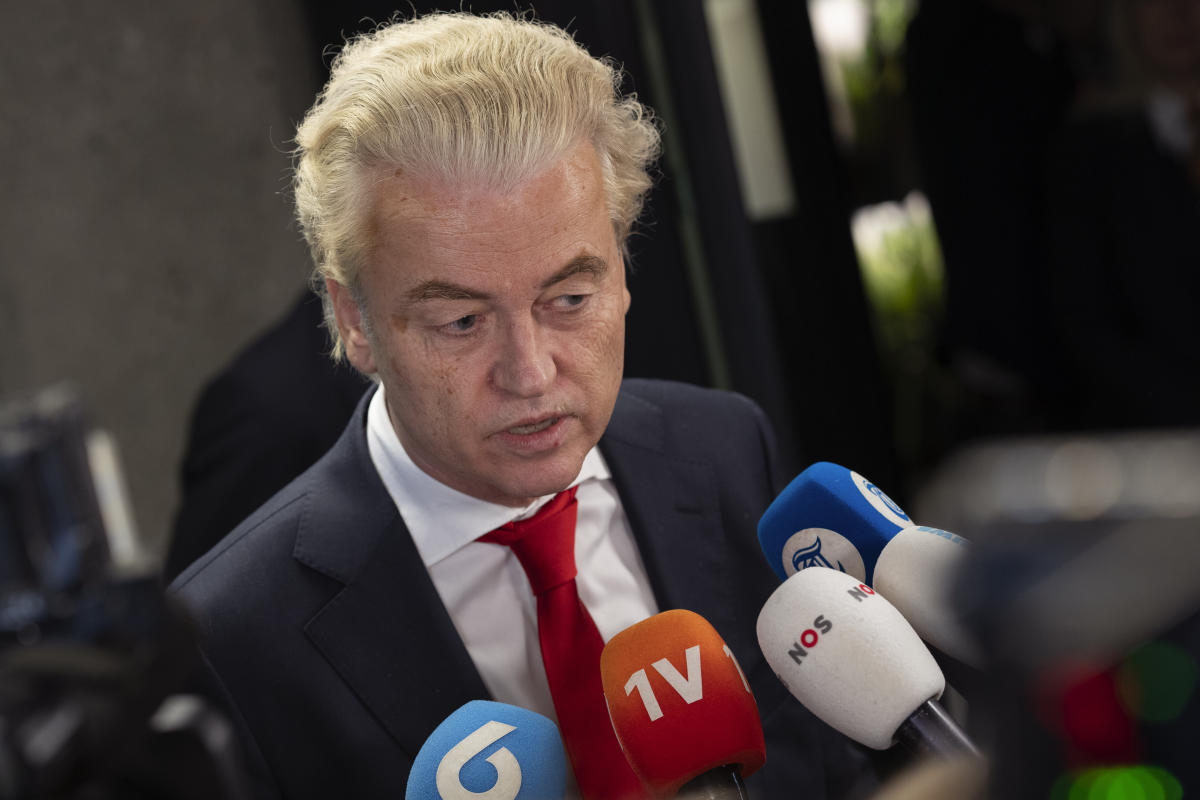Geert Wilders acknowledges lack of support for prime minister role
THE HAGUE, Netherlands — Geert Wilders, a politician known for his anti-Islam and anti-immigration rhetoric, admitted on Wednesday that he does not have the backing of his prospective coalition partners to become the next Dutch prime minister.
Coalition Talks Unveil New Possibilities
Wilders took to X (formerly known as Twitter) to express his sentiment, stating, “I can only become premier if ALL parties in the coalition support that. That wasn’t the case.”
Recent reports, relying on unnamed sources, suggested that a major development in coalition talks occurred the previous night, indicating that the leaders of all four parties engaged in the protracted negotiations would retain their parliamentary positions.
This opens up the possibility of a technical Cabinet comprised of experts. Although Wilders is not likely to lead the government, his Party for Freedom is set to retain influential force in the upcoming administration.
Wilders, as of now, has not responded to a request for comment. Similarly, other leaders involved in the talks have refrained from providing immediate comments.
However, Wilders later shared an additional comment on X, reasserting his future aspirations, stating, “Don’t forget: I will still become premier of the Netherlands. With the support of even more Dutch people. If not tomorrow, then the day after tomorrow. Because the voice of millions of Dutch people will be heard!”
Wilders’ Rise and Ambitions
Following the November 22 elections, Wilders’ party secured 37 seats in the 150-seat lower house of the Dutch parliament. The four parties involved in the government talks hold 88 seats overall, ensuring a comfortable majority. Post-election polls have indicated a continued growth in support for Wilders’ party.
Despite the potential to lead a nation known for its tolerant society, Wilders, who spent two decades staunchly in opposition, has decided to step aside in order to push through most of his policy agenda.
Demonstrating his priorities, Wilders expressed his wishes for a right-wing Cabinet centered on reducing asylum and immigration, with the interests of the Dutch people taking precedence. He asserted, “The love for my country and voter is bigger and more important than my own position.”
Shifting Political Landscape in Europe
The rise of populist far-right movements has been noticeable in Europe for years. Nonetheless, Wilders’ unexpected election victory has left the Netherlands and neighboring nations in shock.
Wilders has consistently advocated for a ban on mosques, Islamic schools, and the Quran. However, to accommodate his prospective coalition partners, he withdrew a draft legislation that proposed these prohibitions.
The Netherlands is not the only country experiencing a political shift to the right. The far-right is also projected to make significant gains in the upcoming elections for the European Union’s parliament. Additionally, Portugal’s recent inconclusive election outcome has placed the populist Chega party in a potential kingmaker position. Andre Ventura, the leader of Chega, has formed ties with various right-wing parties across Europe.
Exploring Alternate Coalition Options
Wilders engaged in talks with the leaders of the center-right People’s Party for Freedom and Democracy, the populist Farmer Citizen Movement, and the centrist New Social Contract on Monday and Tuesday.
With the New Social Contract’s leader, Pieter Omtzigt, ruling out joining a majority Cabinet led by Wilders, the four parties are now contemplating alternative options. These options include a Cabinet composed of both experts and politicians or a minority Cabinet with the support of Omtzigt’s party.
The Netherlands may find inspiration in Italy, which has previously adopted “technical” governments led by figures outside the mainstream political parties. These experts are brought in to navigate the country through particular periods of economic instability or political gridlock before fresh elections are held.
Notably, the most recent such government was headed by Mario Draghi, a highly respected former chief of the European Central Bank. Draghi led Italy through the latter half of the COVID-19 pandemic and successfully revitalized economic growth.
While initially enjoying broad-based support, Draghi’s coalition eventually collapsed in July 2022, and fresh elections were called. The subsequent victory was clinched by Premier Giorgia Meloni of the far-right Brothers of Italy party and their right-wing allies.
____
Associated Press writer Nicole Winfield in Rome contributed.


